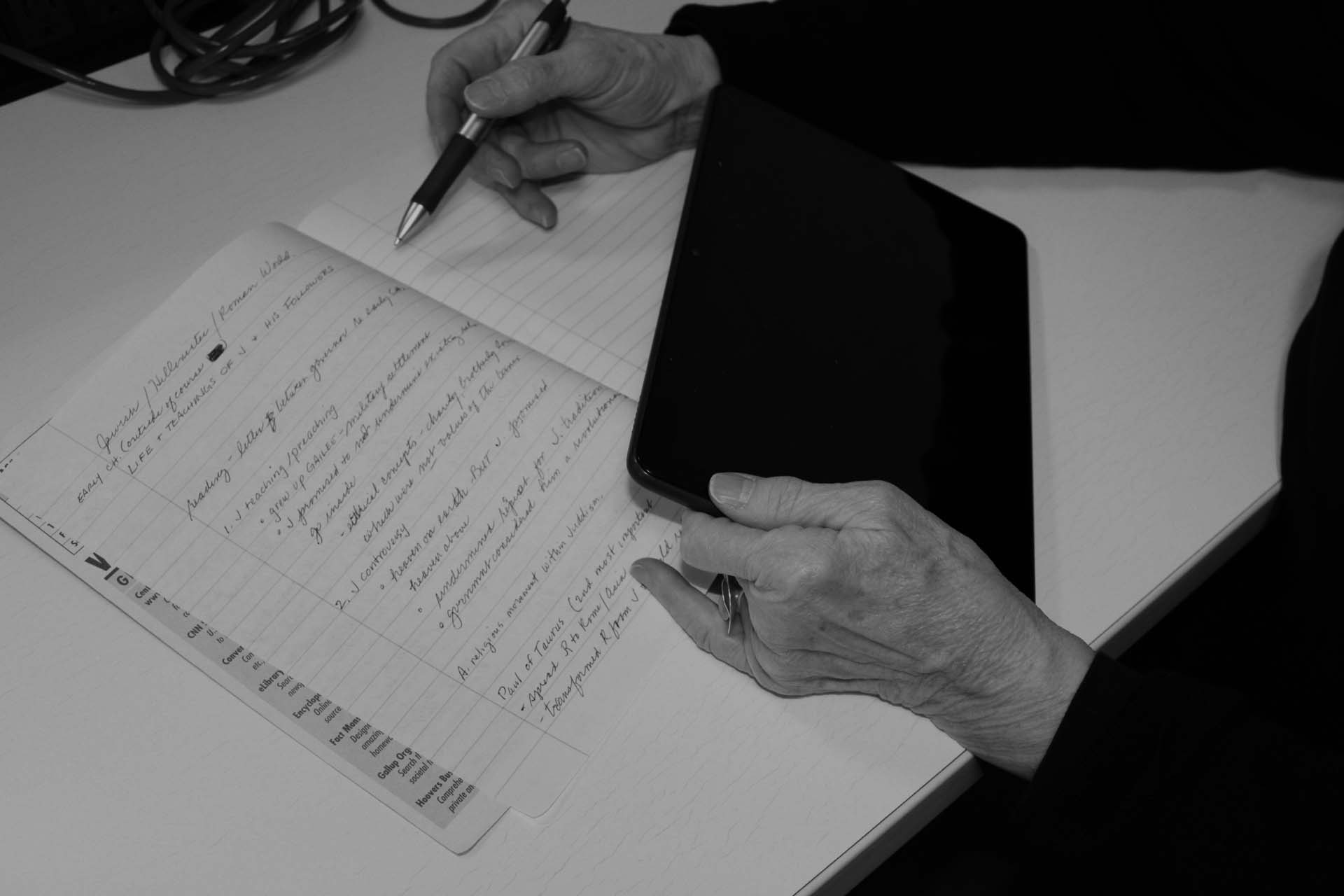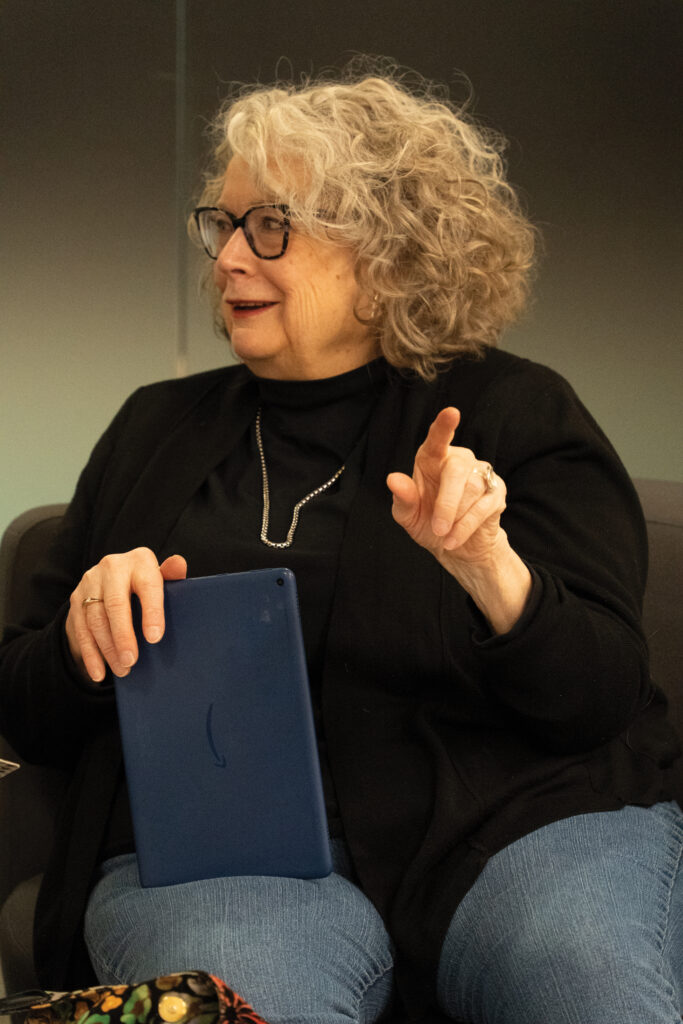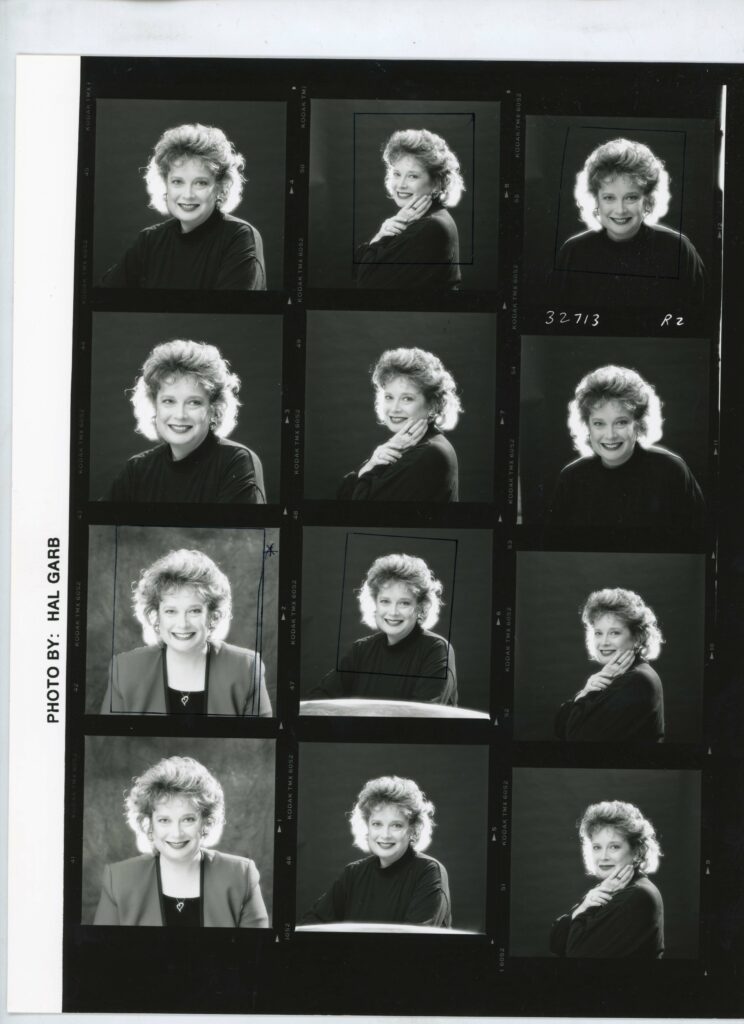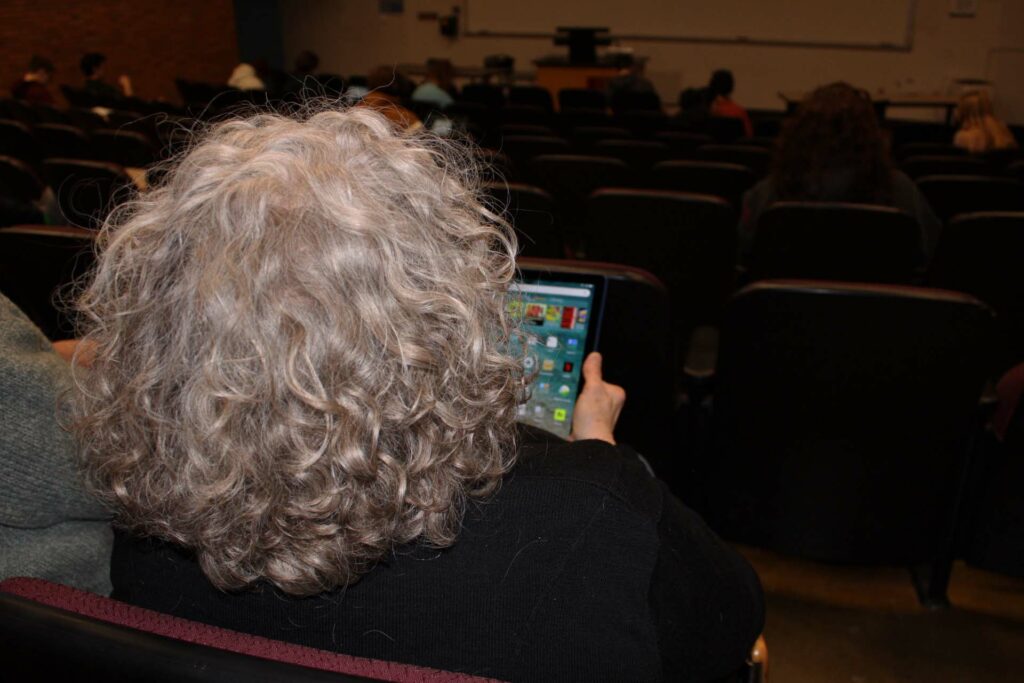
An Endless Search for Knowledge
By Ariana Valentin
Fran Linhart looks over handwritten notes ahead of class in Blegen Hall, located in Minneapolis on March 20, 2024. Photo by Fartun Hassan
The search for knowledge is endless through a Senior Citizen Education program at the University of Minnesota
At a time in life when most people are collecting Social Security, going on vacations or spending time with grandchildren, Fran Linhart went back to school to study music. And then history. And theology.
“When you retire you can choose to be old and live in your old thoughts,” Linhart said. “Or, you can choose to be curious about the world.”
Seven years ago, Linhart, 72, enrolled in the Senior Citizen Education program at the University of Minnesota. This program is possible due to a Minnesota state statute that allows residents 62 and older to take classes at any Minnesota state university for $10 per credit, or free if they sign up to audit the class.

This program is not unique to Minnesota; several states, such as Alabama and Maine, have programs that allow senior citizens to take classes tuition-free.
Linhart studied music 50 years ago, so when she first enrolled in classes, she chose to relearn the things she had previously studied and spent her career practicing.

Her energy fits in at the university. With a cheerful smile and a bright coordinated outfit, her radiance makes her easy to approach and chat with.
“I used to play in bands,” said Linhart. “When I went back to school, I had to study all this stuff I didn’t know, even though I spent 50 years listening to it.”
When Linhart hit a wall of prerequisites with music classes, she decided to keep going and enroll in more classes about the things she has always been curious about. This semester, she’s in a class about Christianity.
“I wasn’t raised in a church so I want to try and understand it more,” she said. “Especially with everything that’s going on in the world right now.”
Linhart spends a lot of time playing piano, singing and doing other work in churches, so the classes at the university allow her to understand the communities she has become a part of.
Even though Benjamin Osborn, 55, is not old enough to qualify for the senior program, he has been taking classes at the university for the last ten years.
“I came into some money so I didn’t have to work,” Osborn said. “I don’t want commitment and with classes, if I don’t want to come in, I can just turn the alarm off.”
Osborn’s career was in computer science and he went to school for several years before he became so successful.
“I graduated in the 2000s with a history degree and I went out to get a master’s in history. I started the Ph.D. program but then realized that I was not motivated enough to do that,” Osborn said.
“A few years later I came back to be a computer science major, which was what I originally went to college for, and flunked out,” he said. “So I finished that and did networking. By the time I had enough money coming in where I didn’t have to work, I just kept taking classes.”
Because Osborn isn’t old enough to qualify for the program, he has been paying full tuition to learn more. He takes mostly history classes, as well as psychology, economics and some computer science.
He has taken several World War I and II classes that specifically address the relationships between the colonized and the colonizers. He learned about how the decreased technology gap during the First World War started to change other countries’ perceptions of the United States.
This semester, he is taking History of Tourism.
“We have talked about the impact on Indigenous people, and now we are getting into the environmental impacts,” he said.
He is also taking an art class about Irish history. “It’s focusing on the 1500s and 1600s right now, and then the last few weeks will bring it up to the 1920s when the Irish Republic began.”
Osborn is more motivated to come to classes when he has two in a day because that means he will be spending more time at the university learning than on his commute from Uptown.
He said he plans on continuing to take classes until he runs out of stuff to learn or enroll in.
Both Osborn and Linhart have gotten to enjoy learning and taking classes while also observing the social patterns of a different generation.
“If you select, and you only stay around people your own age, you miss out,” Linhart said. “Being around young people is really exciting. We can learn so much just by being open.”
None of Linhart’s friends or neighbors are enrolled in the program, but that hasn’t held her back.
“There’s one guy in here that I’ve met in another class, another old senior,” she said. “But you have to get up, you have to drive here, you have to park. Gee. You have to walk. Not a lot of people are doing it.”
Continuing to learn and be curious about the world correlates with positive aging, and this program allows seniors to continue thriving after retirement.

The personal effect
Many of us at the university have had the opportunity to have a senior in at least one of our classes, and the experience may come with a range of emotions.
According to Forbes, the total student loan debt in the United States in 2024 is $1.75 trillion, and over 50% of students attending a four-year university had student loans. The University of Minnesota’s average tuition cost before aid is $31,000 a year.
When I first heard about this program, the first thing I felt was jealousy. And a little resentment.
Going to college is stressful, and over the past four years, the pressure has gotten to me a few times.
I had an older person in one of my classes sophomore year, and I spent time wishing I was in her place.
When you audit a class, you’re not required to do assignments, and this class had several in-front-of-the-class presentations, which were daunting considering this was 2021 and I wasn’t used to talking in front of large groups of people.
I wanted the opportunity to learn without commitment or responsibility.
Growth brings maturity and a changed perspective, and as I prepare to graduate in May, my attitude toward the program has greatly shifted.
As Linhart said, when you only spend time around people your age, you miss out. Allowing yourself to be open to the experiences of others teaches you more about the world and gives you a rounded education.
The search for knowledge is endless, and in 40 years I would enjoy participating in a program like this one. There is always more to learn.


